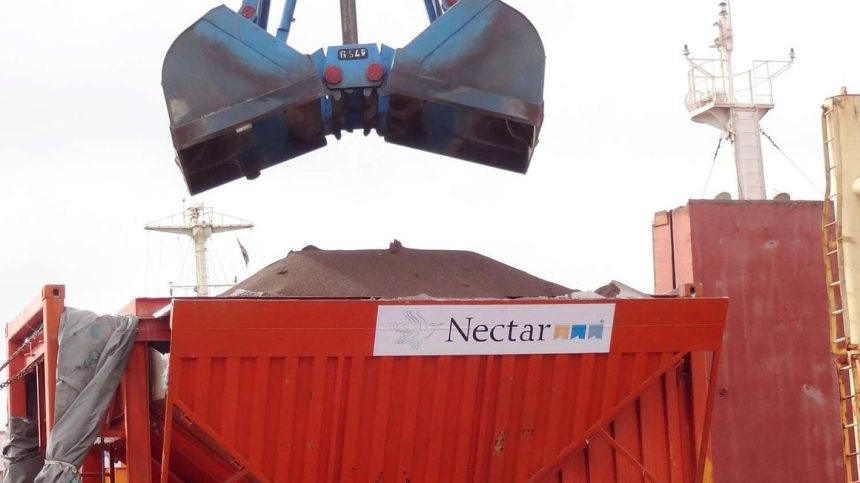Saudi Arabia overtook China, India and the United Arabs Emirates (UAE) to become Kenya’s biggest single import market for the first time, underlining the weight of petroleum products in driving the country’s trade deficit.
Goods imported from the Middle East’s largest economy jumped nearly three times to Sh32.27 billion in March on increased orders of diesel from Sh8.44 billion a month earlier, data released by the Kenya National Bureau of Statistics show.
This was the highest import bill for the month ahead of China (Sh30.34 billion), India (Sh27.32 billion) and the UAE (Sh13.93 billion).
Read: Kenya seals deal for cheaper Saudi fuel
The KNBS data show the surge in imports from Saudi Arabia in March was largely driven by increased shipment of gas oil (diesel), the bulk of which was previously sourced from the UAE.
The increased purchase of diesel from Saudi as opposed to the UAE came before the first consignment under the government-to-government fuel import deal that was inked with Saudi Arabia and the United Arab Emirates on March 10 arrived in Mombasa.
The KNBS data showed diesel replaced jet fuel as the top import by value from the world’s second producer of oil, despite not featuring in the top three goods bought from Saudi Arabia in the previous months.
Oil marketers shipped in nearly 123.61 million litres of gas oil at a cost of Sh13.84 billion in the review month, followed by jet fuel (Sh6.75 billion) and fertiliser (diammonium phosphate) at a value of Sh6.51 billion.

This was unlike in February when top imports from Saudi Arabia were jet fuel at Sh3.66 billion followed by butanes (cooking gas) at Sh1.06 billion and polypropylene (plastics) at Sh648.16 million.
The leading exports from Saudi Arabia to Kenya in March of last year were jet fuel (Sh2.78 billion), fertiliser (Sh2.57 billion) and cement clinkers (Sh1.16 billion).
China has for more than a decade been Kenya’s largest source market for goods such as electrical and electronic equipment, machinery, iron and steel, plastics, articles of apparel and furniture.
Petroleum products have in the past year become the biggest driver of Kenya’s import bill owing to high global prices.
Increased sourcing of petroleum products from the UAE saw the Middle East country leapfrog China and India to become the largest source of imports by value between December and February.
The William Ruto administration has, through the 2023 Budget Policy Statement (BPS), labelled the increasingly volatile price of the commodity a “challenge for consumers and economic stability”.
The cost of energy and transport has a significant weight in the basket of goods and services that is used to measure inflation in the country.
“Transport, as a component of household budgets, is affecting the cost of living,” Dr Ruto said on June 1.
“We have to liberate Kenyans from reliance on transport that depends on petroleum. For this reason, we are rolling out an electric vehicle public transport system which will bring down the cost of transport significantly.”
The President has said the highly ambitious plan will start taking shape with the nascent electrical motorcycle assembly industry up and running from September.
This will be at the end of the March 10 government-to-government deal with Saudi Arabia and UAE for the supply of petroleum products with a six-month credit period in a bid to ease pressure on demand for dollars by local oil marketers.
Kenya is currently getting fuel on credit under the deal the Ruto administration brokered with Saudi Arabia’s State-owned Aramco as well as UAE’s Emirates National Oil Corporation (Enoc) and the Abu Dhabi National Oil Corporation Global Trading (Adnoc).
Aramco is supplying the country through Oryx and Galana, Adnoc picked Gulf Energy to supply diesel and jet fuel while Enoc also settled on Gulf Energy to import super.
Kenya is racing against time to catch up with the rest of the world in the shift to clean mobility, with scores of automakers and governments announcing they will completely phase out diesel and petrol-powered vehicles by 2040.
The Treasury has pledged to provide financial and tax incentives for public service vehicles and commercial transporters which shift to electric vehicles.
Read: UAE topples China as top import source on costly fuel
“The government will roll out electric vehicle (EV) charging infrastructure in all urban areas and along the highways and create incentives for adoption of electric mass transit systems in all cities and towns,” Treasury Cabinet Secretary Njuguna Ndung’u wrote in the BPS.
Expenditure on importation of petroleum products shot up 72.13 percent to Sh656.62 billion last year, pointing to record high growth which prompted the previous administration of former President Uhuru Kenyatta to cushion consumers on the purchase of petroleum products to stem inflationary pressures on key sectors such as transportation, manufacturing and agriculture.
The fuel price stabilisation scheme cost taxpayers Sh81 billion in the financial year ended June 2022, for instance, highlighting the impact of State intervention on the country’s revenue.



